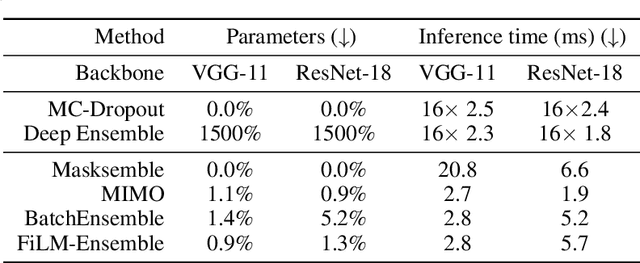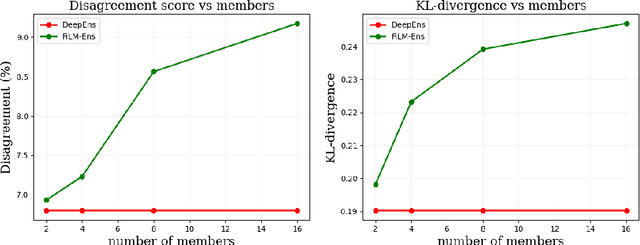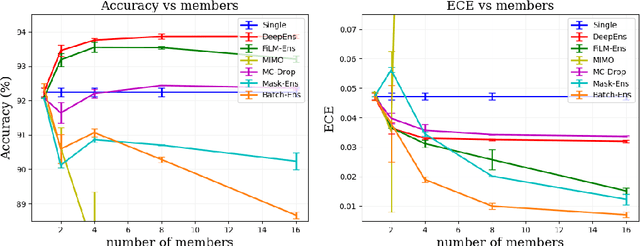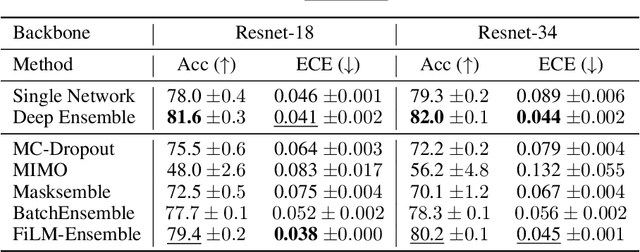Hüseyin Anil Gündüz
Diversified Ensemble of Independent Sub-Networks for Robust Self-Supervised Representation Learning
Sep 01, 2023Abstract:Ensembling a neural network is a widely recognized approach to enhance model performance, estimate uncertainty, and improve robustness in deep supervised learning. However, deep ensembles often come with high computational costs and memory demands. In addition, the efficiency of a deep ensemble is related to diversity among the ensemble members which is challenging for large, over-parameterized deep neural networks. Moreover, ensemble learning has not yet seen such widespread adoption, and it remains a challenging endeavor for self-supervised or unsupervised representation learning. Motivated by these challenges, we present a novel self-supervised training regime that leverages an ensemble of independent sub-networks, complemented by a new loss function designed to encourage diversity. Our method efficiently builds a sub-model ensemble with high diversity, leading to well-calibrated estimates of model uncertainty, all achieved with minimal computational overhead compared to traditional deep self-supervised ensembles. To evaluate the effectiveness of our approach, we conducted extensive experiments across various tasks, including in-distribution generalization, out-of-distribution detection, dataset corruption, and semi-supervised settings. The results demonstrate that our method significantly improves prediction reliability. Our approach not only achieves excellent accuracy but also enhances calibration, surpassing baseline performance across a wide range of self-supervised architectures in computer vision, natural language processing, and genomics data.
FiLM-Ensemble: Probabilistic Deep Learning via Feature-wise Linear Modulation
May 31, 2022



Abstract:The ability to estimate epistemic uncertainty is often crucial when deploying machine learning in the real world, but modern methods often produce overconfident, uncalibrated uncertainty predictions. A common approach to quantify epistemic uncertainty, usable across a wide class of prediction models, is to train a model ensemble. In a naive implementation, the ensemble approach has high computational cost and high memory demand. This challenges in particular modern deep learning, where even a single deep network is already demanding in terms of compute and memory, and has given rise to a number of attempts to emulate the model ensemble without actually instantiating separate ensemble members. We introduce FiLM-Ensemble, a deep, implicit ensemble method based on the concept of Feature-wise Linear Modulation (FiLM). That technique was originally developed for multi-task learning, with the aim of decoupling different tasks. We show that the idea can be extended to uncertainty quantification: by modulating the network activations of a single deep network with FiLM, one obtains a model ensemble with high diversity, and consequently well-calibrated estimates of epistemic uncertainty, with low computational overhead in comparison. Empirically, FiLM-Ensemble outperforms other implicit ensemble methods, and it and comes very close to the upper bound of an explicit ensemble of networks (sometimes even beating it), at a fraction of the memory cost.
 Add to Chrome
Add to Chrome Add to Firefox
Add to Firefox Add to Edge
Add to Edge